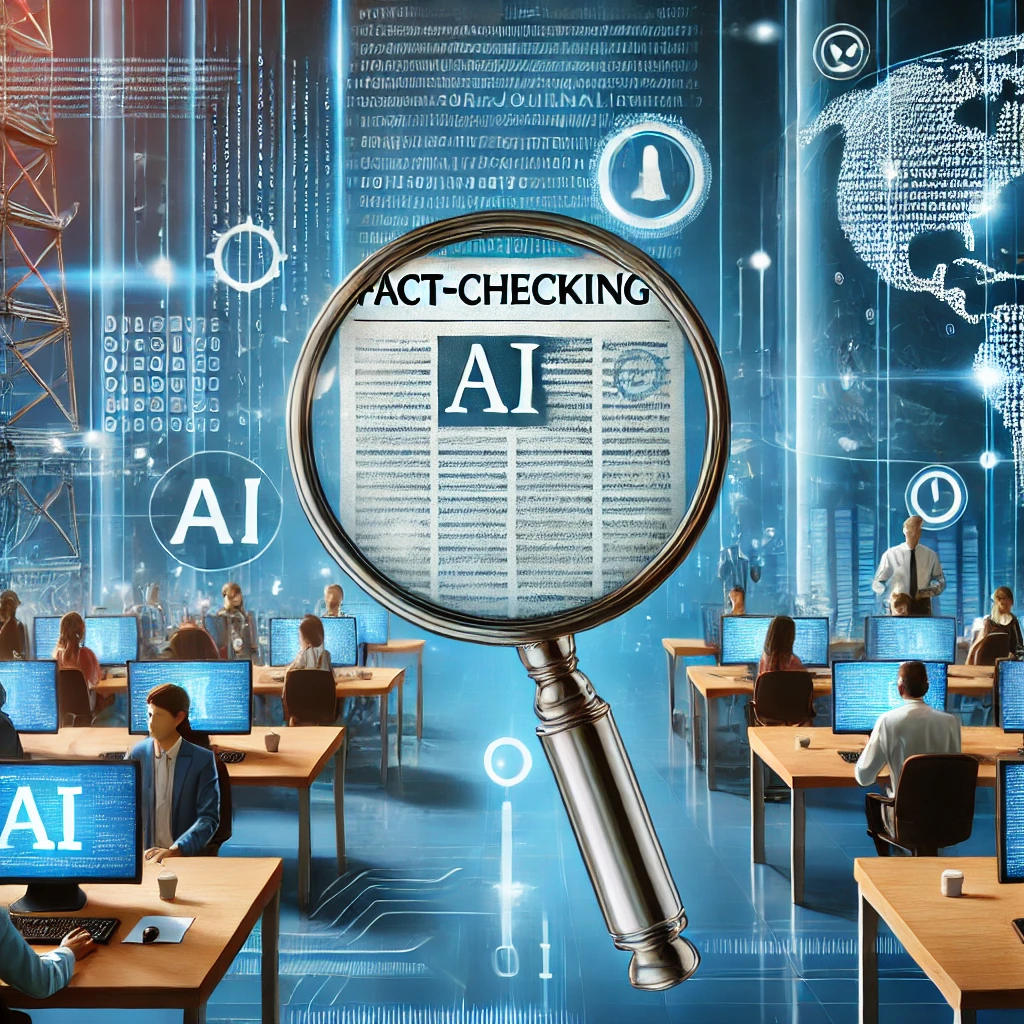Part 2: Fact-Checking in the Age of AI: Enhancing Accuracy in Journalism
Part 1 of this series explored how AI transforms fact-checking in journalism, from detecting deepfakes to combating COVID-19 misinformation. In this continuation, we’ll examine the rise of real-time fact-checking, the ethical implications of AI in journalism, and how blockchain technology is being utilized to enhance transparency.
The Rise of Real-Time Fact-Checking During Live Events
AI is now being used to fact-check live events like debates and speeches. Tools like Full Fact Live provide instant fact-checks during events, highlighting inaccuracies to viewers in real-time. This tech is getting more advanced and may soon integrate with broadcasts to give audiences immediate corrections and context.
For example, Full Fact Live has been used during televised debates, offering immediate verification of claims made by public figures and showcasing how AI can enhance the accuracy of information delivered to the public.
Ethical Implications and the Future of AI in Fact-Checking
AI’s advances raise ethical concerns in journalism, especially around misinformation. Oversight and ethical standards are crucial. Collaboration among AI developers, journalists, and fact-checking groups will impact AI’s role in journalism. Partnerships are vital for ethical AI practices, balancing efficiency with human critical thinking.
The Role of Blockchain in Fact-Checking
Blockchain technology is increasingly being explored to enhance transparency in fact-checking. Platforms like Legitimate.net use blockchain to authenticate journalistic content, ensuring that information sources can be verified and trusted. This decentralized approach to fact-checking reduces the influence of any single entity on the determination of truth, offering a promising way forward in maintaining journalistic integrity.
Case Study Update: Facebook’s AI Misinformation Detection
In 2024, Facebook expanded its AI-driven misinformation detection tools to include WhatsApp and Instagram, focusing on private messaging groups where misinformation can spread unchecked. These AI systems detect patterns of misinformation sharing and flag content for review, even within encrypted messages. This development highlights the growing importance of AI in monitoring closed ecosystems, where traditional fact-checking methods struggle to reach.
The Impact of AI on Local Journalism
AI tools are increasingly customized for local news, as resources are limited. Meedan’s Check platform and Legitimate provide AI tools to help local newsrooms verify and debunk misinformation. Legitimate uses blockchain to authenticate news content, ensuring credibility. These tools help small news outlets build trust, even with limited resources.
Conclusion: Collaboration is key
AI in fact-checking is advancing quickly with new tools and ethical concerns. Collaboration between tech and media experts is key for responsible AI use in journalism. Journalism’s future relies on maximizing AI’s potential while upholding core values like accuracy and integrity.


Leave a Reply